news
Tinubu Pushes for Obasa’s Return as Lagos Speaker – Reports
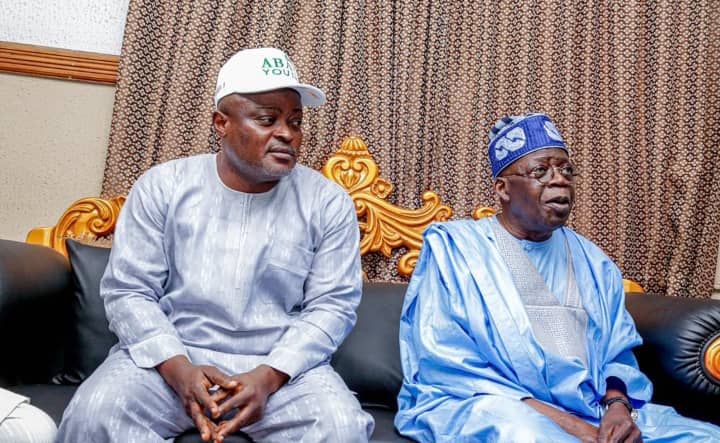
President Bola Ahmed Tinubu has allegedly intensified efforts to reinstate Mudashiru Obasa as Speaker of the Lagos State House of Assembly, just three weeks after his impeachment.
According to insider sources, Tinubu urged lawmakers over the weekend to reconsider Obasa’s return, warning of potential political fallout. Of the 40-member Lagos Assembly, 38 belong to the ruling All Progressives Congress (APC). A senior politician who attended weekend meetings revealed to Peoples Gazette:
“The president instructed us to prepare for his reinstatement. He assured that Obasa would only stay briefly before resigning on his own terms.”
Another source added:
“We have agreed to let him return for a ‘soft landing’ because prolonging this crisis could have severe political consequences.”
However, some lawmakers remain uneasy about the move, especially those who backed his impeachment on January 13, 2025.
One legislator warned:
“Bringing him back is like trying to pacify a snake after cutting off its head. The venom will be even deadlier.”
High-Stakes Meeting in Abuja
A crucial meeting is set for Monday in Abuja, where lawmakers resisting Tinubu’s directive are expected to be persuaded. A senior political figure noted:
“Many of us have agreed to reinstate him, but we don’t know how this battle will end.”
Why Was Obasa Impeached?
Obasa was removed as Speaker on January 13 following allegations of misappropriating billions in procurement allocations for vehicles and other items never delivered. His impeachment led to the appointment of Lasbat Mojisola Meranda as Speaker, supported by at least 32 out of 40 lawmakers.
Despite this, Obasa has refused to vacate the official Speaker’s residence in Ikeja G.R.A. After returning from an overseas trip, he reportedly went straight to the Speaker’s Lodge instead of his private home.
A source disclosed:
“He initially claimed he was collecting personal belongings, but he has refused to leave. Madam Speaker is hesitant to forcibly take over the lodge.”
First Lady Remi Tinubu’s Alleged Influence
It remains unclear if First Lady Remi Tinubu played a role in her husband’s push for Obasa’s reinstatement. However, sources claim her intervention prevented the EFCC from arresting Obasa, though she did not oppose an anti-corruption probe.
Political Fallout Looms
Tinubu’s backing of Obasa is expected to deepen political divisions in Lagos. However, lawmakers are reluctant to challenge the president due to his stronghold on the state’s politics.
A frustrated lawmaker remarked:
“Some of us feel humiliated, but no one dares to challenge him openly.”
Sources say Obasa met Governor Babajide Sanwo-Olu in Marina on Saturday to finalize his return, which could happen as early as next week.
When contacted, a presidential spokesman denied knowledge of Tinubu’s involvement. Both Obasa and Speaker Meranda declined to comment.
news
Group Sues LASIEC Over Plan to Conduct LG Elections in 57 LCDAs
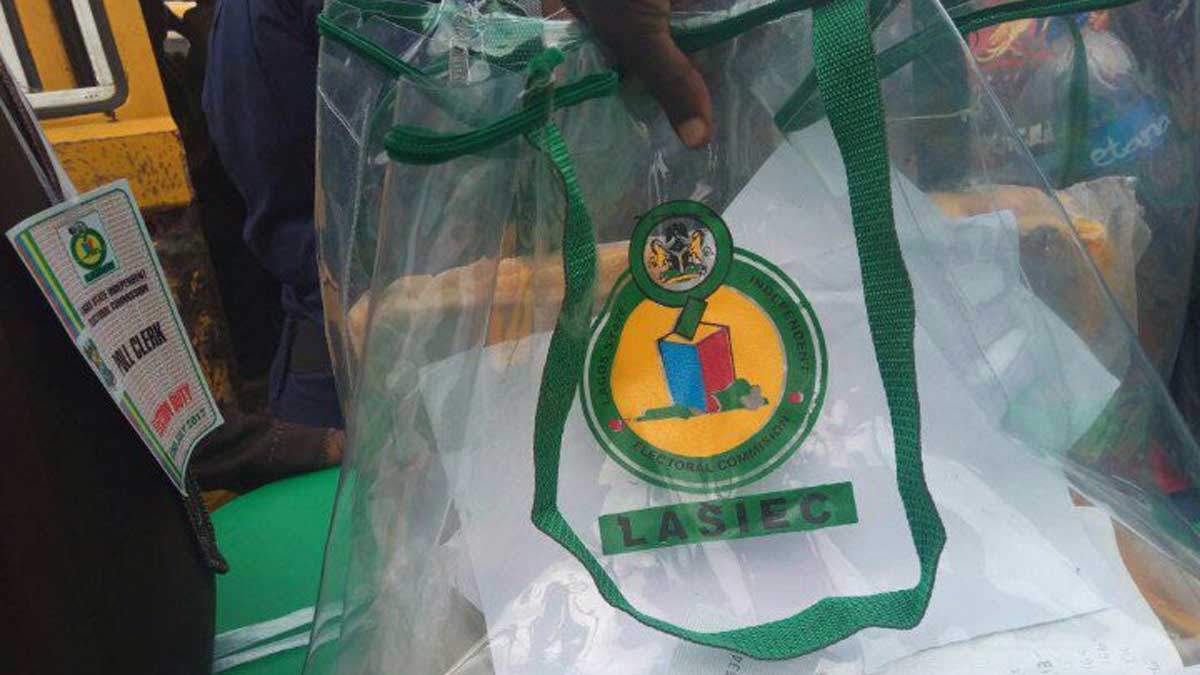
A Lagos-based socio-cultural group, De Renaissance Patriots Foundation, has filed a lawsuit against the Lagos State Independent Electoral Commission (LASIEC) over its plan to conduct local government elections in 37 Local Council Development Areas (LCDAs), instead of the 20 constitutionally recognized local government areas.
The suit, lodged at the Federal High Court in Ikoyi, challenges the legality of holding elections in the LCDAs. The Foundation argues that the planned polls are unconstitutional, illegal, and in clear violation of the 1999 Constitution of the Federal Republic of Nigeria (as amended).
The plaintiff is asking the court to determine whether LASIEC possesses the legal authority to conduct elections outside the 20 LGAs explicitly recognized in the constitution. The case is expected to come up for hearing in July.
Sanwo-Olu to Meet APC Stakeholders to Strategize Ahead of LG Polls
APC Chairmanship Aspirant Unveils Seven-Point Agenda for Ejigbo LCDA
Meanwhile, an All Progressives Congress (APC) chairmanship aspirant for Ejigbo LCDA, Taoheed Taiwo, has unveiled a seven-point development agenda as part of his campaign to bring inclusive and sustainable governance to the community.
Speaking during the official flag-off of his campaign, Taiwo described his manifesto as a “people-based social contract” that prioritizes action over promises. He urged residents to unite behind a vision focused on inclusion, security, and growth.
Taiwo’s agenda includes:
-
Improved Qualitative Healthcare – Establishing solar-powered primary healthcare centers and providing health insurance for the elderly and vulnerable.
-
Education Development – Reconstructing public primary schools across the LCDA.
-
Infrastructure Renewal – Rehabilitating roads, enhancing traffic systems, and installing streetlights for improved safety and mobility.
-
Inclusive Empowerment
-
Enhanced Security – Strengthening community policing, supporting local vigilantes, and improving emergency response mechanisms.
-
Economic Growth
-
Environmental Beautification
Taiwo emphasized his commitment to translating the manifesto into measurable outcomes and called on residents to embrace the opportunity for meaningful progress.
news
Lagos Overhauls Chieftaincy Law, Empowers Governor with Final Authority
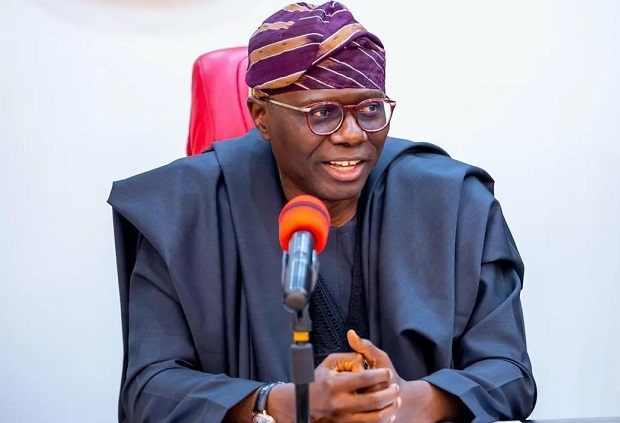
Lagos Proposes Overhaul of Chieftaincy Law, Expands Governor’s Authority and Codifies Monarchs’ Roles
In a historic move to modernize traditional governance, the Lagos State Government is set to repeal and re-enact the Obas and Chiefs Law, introducing a comprehensive legal framework that redefines the roles of traditional rulers and strengthens government oversight.
The draft bill, currently under review following a high-level stakeholders’ meeting convened by the Ministry of Justice, seeks to clarify the functions, powers, and legal standing of monarchs within Lagos’ evolving administrative landscape. Attendees included traditional rulers from the state’s five divisions, lawmakers, legal experts, and community leaders.
Sanwo-Olu to Meet APC Stakeholders to Strategize Ahead of LG Polls
Defining the Role of Traditional Rulers
One of the bill’s key innovations is the formal codification of the duties of Obas and Chiefs. Section 2 of the proposed law lists their responsibilities as conflict mediation, community development, grassroots communication, security support, and advocacy for tax compliance. This legal recognition aims to resolve longstanding ambiguity surrounding their function in democratic governance.
The bill also exempts official palaces and heritage homes—such as the Iga and Awanu—from property rates, acknowledging their cultural significance and allowing for state-supported maintenance, subject to the consent of the ruling Oba or Chief.
Governor’s Authority Over Chieftaincy Affairs
A major and contentious feature of the bill is the expanded power of the Governor in chieftaincy matters. Under the new law, the Governor can approve, reject, or reverse traditional appointments—even if customary selection processes are followed—based on public interest, peace, or order.
While this provision is intended to prevent disputes, critics argue it centralizes authority excessively. To mitigate concerns, the bill permits affected parties to challenge such decisions in court within 21 days and mandates a 60-day response window for the Governor on petitions.
Regulation of Customary Chiefs and Anti-Impersonation Measures
To address the proliferation of impostor chiefs, the bill introduces penalties for unauthorized installations. Section 23 prescribes up to two years’ imprisonment or a N5 million fine for installing or impersonating a chief without approval. It also penalizes those who obstruct installation rites or occupy chieftaincy property unlawfully.
Chieftaincy Committees at the local government level will handle appointments and disputes, ensuring adherence to custom and legality.
Criteria for Establishing New Chieftaincy Titles
The bill stipulates that any new traditional stool must be at least 120 years old under customary law. Proposals will undergo a public inquiry, legal vetting, and community feedback within a 30-day period before final approval by the Governor. This process aims to preserve the integrity of traditional institutions and avoid politically motivated creations.
Reclassification of Obas and Control of Honorary Titles
The law also introduces a classification system for monarchs: Special Grade, Grades A, B, and C (which includes upgraded Baales). This is expected to reduce intra-council disputes over status.
The conferment of honorary chieftaincy titles is now restricted to Obas—limited to five per year and subject to prior approval by the Commissioner. Unauthorized title conferments are criminalized, carrying similar penalties as illegal installations. Additionally, honorary chiefs cannot be elevated to full traditional rulers.
Restructuring of the Council of Traditional Rulers
Part 8 of the proposed law reorganizes the Lagos State Council of Traditional Rulers. The Oba of Lagos becomes the permanent Chairman, supported by four Deputy Chairmen representing the state’s divisions and five rotating Vice Chairmen from Grade A monarchs. With a 60-member council, the body will advise the state on traditional matters, provide policy feedback, and assist with conflict resolution.
Conclusion
Lagos State’s bold legislative initiative could redefine the relationship between modern government and traditional institutions. By clarifying roles, regulating appointments, and institutionalizing legitimacy, the proposed law aims to harmonize cultural heritage with contemporary governance needs.
If implemented with fairness and diligence, the new chieftaincy law could serve as a national model for traditional leadership reform.
news
Sanwo-Olu to Meet APC Stakeholders to Strategize Ahead of LG Polls

Lagos State Governor, Mr. Babajide Olusola Sanwo-Olu, will tomorrow at noon host a stakeholders’ parley with leaders, elected and appointed officials, as well as chairmanship and councillorship candidates of the All Progressives Congress (APC) at the State House, Marina.
The high-level meeting is expected to serve as a strategic rallying point for party mobilisation ahead of the July 12 local government elections.
This follows the formal presentation of party flags to the 57 APC chairmanship candidates last week at the party’s state secretariat in Ogba — a colourful event attended by key figures in government and the party hierarchy. The ceremony marked the official commencement of campaigns and provided a morale boost to party faithful in anticipation of another electoral victory.
Lagos LG Polls a Strategic Step Toward Tinubu’s Re-election, Says Sanwo-Olu
The Lagos APC expresses deep appreciation for the trust and confidence reposed in the party by Lagosians, which has continued to drive the state’s unmatched progress across all sectors.
We remain confident that the outstanding achievements of our local councils — particularly in education, primary healthcare, housing, and grassroots social interventions — will be rewarded with widespread voter support at the polls.
-
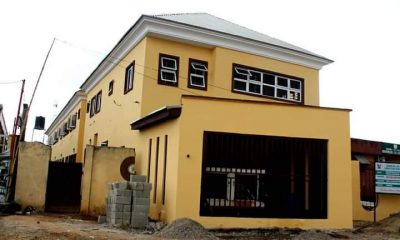
 Conference 577 months ago
Conference 577 months agoAgbado/Oke-Odo LCDA: A Hub of Transformation Under Chairman Famuyiwa
-
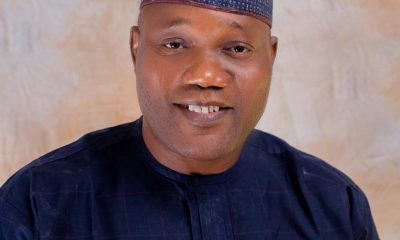
 Conference 5710 months ago
Conference 5710 months agoOjokoro LCDA: A Hub of Development and Progress
-

 entertainment11 months ago
entertainment11 months agoRHOLagos Season 3 Unveiled: Sophia Momodu, Dabota Lawson & Adeola Diadem Join the Drama!
-

 news11 months ago
news11 months agoThe Future of Football: Top Academies in Lagos Shaping Nigeria’s Next Stars
-
Conference 5710 months ago
Agege Local Government: A Thriving Hub of Progress, Leadership, and Growth
-
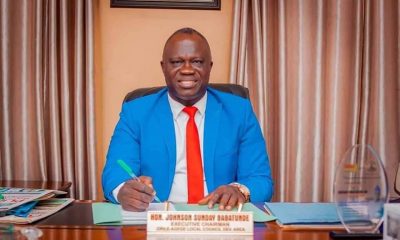
 Conference 5710 months ago
Conference 5710 months agoOrile Agege LCDA: A Model of Growth and Development in Lagos
-
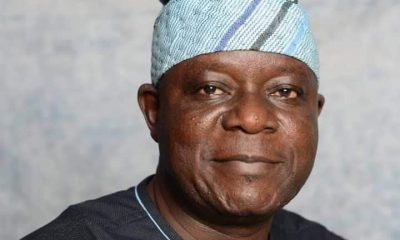
 Conference 577 months ago
Conference 577 months agoTransforming Communities: Inside the Leadership of Igando-Ikotun LCDA
-
lifestyle11 months ago
Rasaq Okoya at 85: Celebrating the Legacy of a Nigerian Business Icon




